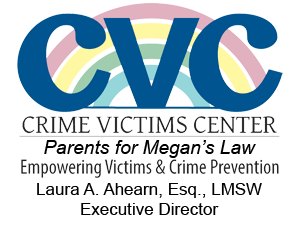Crime Victims Center Human Trafficking Program Help for Victims
For the past three years, the US Department of Justice has identified Long Island as a top 21 spot in the US for human trafficking. Girls and women are advertised regularly for sex on backpage.com, and many foreign nationals are trafficked by Central American cartels to the farms on the East End of Long Island, or to the mansions that dot the coast.
Human trafficking is often misunderstood and under-reported. SEPA Mujer has identified that the most trafficked group is Spanish-speaking Central American women. Stigma surrounding trafficking and the media’s distorted presentation of it have led to a broken understanding and response on all levels. Often times, victims of trafficking are not even aware that they themselves are victims. Victims of human trafficking are often isolated from friends, neighbors and relatives; they are often forced to live in a certain space under certain conditions; they often work for someone who controls their earnings and their work; victims often exchange sex or forced labor for money, food, drugs or other goods. Trafficking is abusive as an institution, but it is frequently accompanied by physical and emotional abuse as well.
According to Polaris, “Although slavery is commonly thought to be a thing of the past, human traffickers generate hundreds of billions of dollars in profits by trapping millions of people in horrific situations around the world, including here in the U.S. Traffickers use violence, threats, deception, debt bondage, and other manipulative tactics to force people to engage in commercial sex or to provide labor or services against their will. While more research is needed on the scope of human trafficking, below are a few key statistics:
- The International Labour Organization estimates that there are 40.3 million victims of human trafficking globally.
- 81% of them are trapped in forced labor.
- 25% of them are children.
- 75% are women and girls.
- The International Labor Organization estimates that forced labor and human trafficking is a $150 billion industry worldwide.
- The U.S. Department of Labor has identified 148 goods from 75 countries made by forced and child labor.
- In 2017, an estimated 1 out of 7 endangered runaways reported to the National Center for Missing and Exploited Children were likely child sex trafficking victims.
- Of those, 88% were in the care of social services or foster care when they ran.
- There is no official estimate of the total number of human trafficking victims in the U.S. Polaris estimates that the total number of victims nationally reaches into the hundreds of thousands when estimates of both adults and minors and sex trafficking and labor trafficking are aggregated.
Statistics from the National Human Trafficking Hotline and Polaris BeFree Textline
• More than 49,000 total cases of human trafficking have been reported to the Hotline in the last 10 years.
• The Hotline annually receives multiple reports of human trafficking cases in each of the 50 states and D.C.
• The number of human trafficking cases that Polaris learns about in the U.S. increases every year.
• 24% of texting conversations on the Polaris BeFree Textline were from survivors of human trafficking compared to 14% of phone calls on the Hotline.
• The Hotline receives an average of 150 calls per day.
CVC Provides the following Supportive Services for Human Trafficking Victims:
- Advocacy and courtroom accompaniment
- Assistance in obtaining an order of protection
- Information on the criminal justice process
- Legal guidance
- Transportation to Social Services from Cohalan Court Complex
- Assistance with obtaining support services
- Referrals for treatment and housing
- Counseling/Support
- The CVC Human Trafficking program is designed to provide trauma informed supportive services to individuals caught in a cycle of abuse. The program is focused on intervention, case management to ensure victims are provided the services they need, information and referrals and education to help victims re-engage and restore normality to their lives.
For information on how we can provide criminal justice assistance, call:
631 689-2672 during business hours or our 24 hour Hotline at 631 332-9234.
1 Polaris. Available online at https://polarisproject.org/human-trafficking
